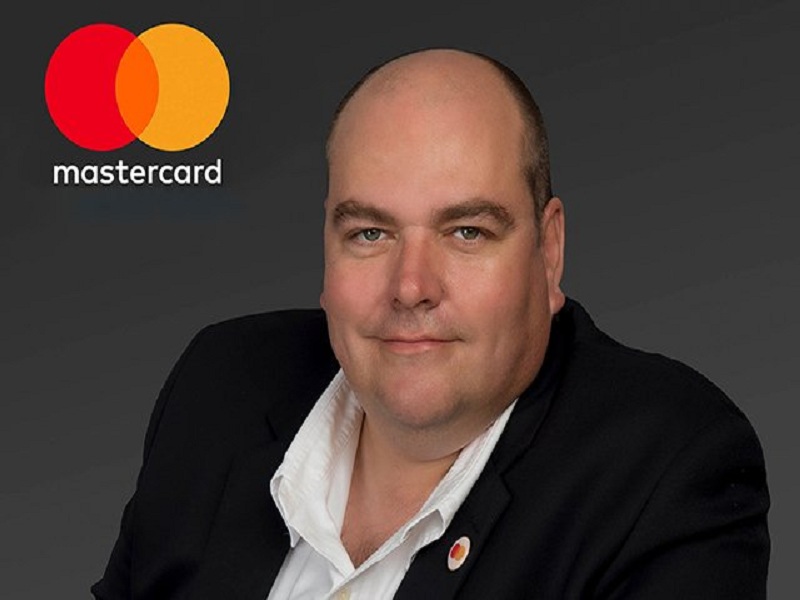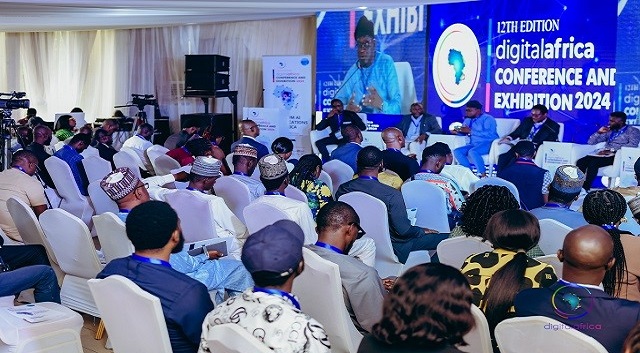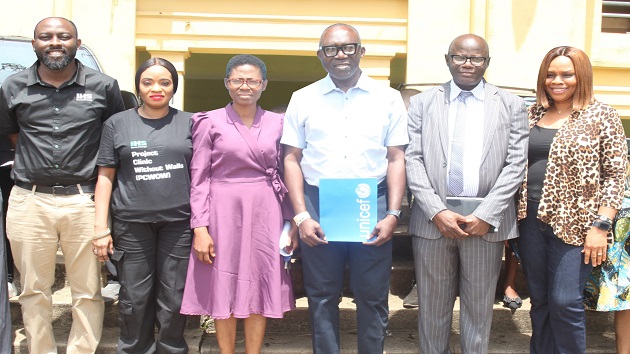General News
Gabriel Swanepoel Named as the New Country Manager for Mastercard South Africa

Mastercard has appointed Gabriel Swanepoel as the new Country Manager for Mastercard in South Africa.

Gabriel Swanepoel, new Country Manager, Mastercard, South Africa
This serves as a promotion from his current role as the Vice President of Business Integration for Mastercard, Southern Africa.
As country manager, Gabriel Swanepoel is responsible for further driving the company’s strategic vision, innovation and growth agenda and building on its successful purpose-driven culture in South Africa.
Swanepoel’s ‘digital-first’ business acumen and two-decades-long career in the South Africa payments industry will further support Mastercard accelerate the uptake of digital payments and strengthen its multi-rail capabilities in cards, real-time payments, and support for digital currencies.
Since joining Mastercard in 2015, Gabriel Swanepoel has been responsible for all aspects of innovation and product development from project inception to commercialisation.
He has been instrumental in positioning and executing on Mastercard’s digital strategy within Southern Africa, leading the team that has introduced and made QR payments ubiquitous, as well as bringing more than 50 fintechs together to digitise person-to-merchant payments across multiple use cases in South Africa, amongst other achievements.
“Gabriel has been an invaluable member of our leadership team in South Africa for years. His local knowledge, and deep experience are substantial assets for our local business. Leading a dynamic team, Gabriel will support Mastercard in doubling down on efforts to build an inclusive and digitalized economy in South Africa, while enabling our customers and partners to better prepare for economic recovery and growth,” said Mark Elliott, division president at Mastercard, Southern Africa.
Prior to joining Mastercard in 2015, Swanepoel was the New Business and Innovation Manager for Verifone Africa, where he oversaw all new product and business development initiatives in South Africa.
He has also consulted at MTN Mobile Money Holdings, where he was responsible for innovation related initiatives.
His entrepreneurial approach has also brought him success as one of the founders of XLink Communications, a machine-to-machine communications business, which today is one of the leading providers of card terminal and ATM communications services in South Africa.
He takes over from Suzanne Morel, who returns to Mastercard’s New York office after two years of leading the local business.
General News
Africa Gears Up For Digital Sovereignty At 13th Edition Of Digital Africa Conference 2025

Africa’s digital destiny will on October 28-29, 2025, take centre stage at the 13th Edition of the Digital Africa Conference & Exhibition (DACE), to be held at Merit House, Abuja, under the theme: “Sovereign Intelligence: Africa’s Voice in the Global Digital Order.”

At a time when artificial intelligence (AI), smart systems, and data technologies are reshaping societies, economies, and governance structures worldwide, DACE 2025 is sounding a clarion call: ‘Africa must lead, not lag in this transformation.’
Organizers say the aim is to move beyond consumption and dependency, and instead position the continent as a proactive contributor to global digital norms and governance.
“This year’s conference is about shifting from passive adoption to active leadership,” said Dr. Evans Woherem, Chairman, Digital Africa Consult, organisers of the event. “Sovereign Intelligence is more than a concept, it’s a movement to ensure that Africa controls its digital resources, designs its own ethical frameworks, and asserts its voice in shaping global technology norms.”
A Defining Moment for Africa’s Digital Future
Woherem said the conference will serve as a high-level, cross-sectoral platform aimed at positioning Africa as a co-author of global AI governance standards, rather than a mere recipient, assuring that the conversations are expected to align closely with the African Union’s Continental AI Strategy, advocating for a united, self-determined digital ecosystem across the continent.
“The urgency of this moment cannot be overstated. As the world builds its digital infrastructure, much of the technology consumed in Africa is still imported, foreign-owned, and culturally disconnected. African data is often stored offshore, local languages and cultural contexts remain invisible in AI systems, and African experts are frequently excluded from global decision-making tables.
“This must change. Digital Africa 2025 is about taking control of our data, our narratives, and our technological development. Africa must move from being users of foreign systems to creators of our own,” Woherem added.
Key Objectives of DACE 2025
One of the primary objectives of this year’s event is to advocate for African ownership of digital infrastructure, data policies, and technology standards. Organizers hope to inspire African leaders and institutions to say yes to innovation and regulation built by Africans, for Africans.
Another major focus will be amplifying African voices on the global stage. This involves not only advocating for inclusion in international policy dialogues but also ensuring that African values, cultures, and wisdom shape the design and deployment of AI systems worldwide.
“The conference will also spotlight homegrown innovation. Startups and developers from across the continent will showcase digital solutions addressing local challenges in healthcare, agriculture, finance, and education. These practical examples will reinforce the message that Africa is already generating intelligent, scalable answers to complex problems,” said Nneoma Ofodile, General Manager, Digital Africa.
Empowering young Africans through digital skills, research opportunities, and leadership training is another key goal of the gathering. Organizers are committed to fostering a new generation of African tech leaders who can confidently shape global digital trends from a place of knowledge and ownership.
Regional cooperation will be front and centre, as DACE encourages cross-border collaboration on harmonizing laws, sharing infrastructure, and building integrated digital ecosystems. Sessions will explore how African nations can jointly develop policies and platforms that reflect the continent’s unique needs and aspirations.
While global partnerships will also be on the agenda, the conference aims to deepen Africa’s engagement with international institutions such as UNESCO, the UN, and the OECD, not as passive participants but as co-authors of global standards for ethical and inclusive AI.
Nneoma said that throughout the two-day event, attendees can expect high-level discussions on digital law, tech sovereignty, and innovation policy, alongside practical workshops for developers, educators, and youth. Innovation showcases will highlight the work of African tech hubs, while strategy sessions will promote cross-country digital alignment.
At the close of the event, a concrete roadmap is expected to emerge—outlining actionable steps toward achieving digital sovereignty across the continent. The conference will also aim to strengthen networks among African innovators, regulators, and thinkers, while increasing the visibility of African insights in international technology policy.
Above all, Digital Africa 2025 is about reclaiming agency. “This isn’t just a technology conversation,” Nneoma emphasized. “It’s about power, voice, and independence. Africa must not only catch up; Africa must lead.”
As preparations intensify, DACE 2025 is inviting visionary organizations, sponsors, and partners to join the mission of building a digitally sovereign and inclusive Africa.
General News
IHS Nigeria, UNICEF Assess Impact of their Lifesaving Oxygen Plant Donated to Oyo State

IHS Nigeria, part of the IHS Holding Limited (“IHS Towers”) group, one of the largest independent owners, operators, and developers of shared communications infrastructure in the world by tower count, has continued its impact assessment tour of its oxygen plant projects situated in different hospitals across the country.

The telecommunications infrastructure company visited Jericho Specialist Hospital, Ibadan, Oyo State on Wednesday, June 18, 2025, to assess the usage condition of the oxygen plant jointly donated in collaboration with the United Nations Children’s Fund (UNICEF) in May 2024.
The oxygen plant donation is part of IHS Nigeria’s commitment to improving Nigeria’s healthcare system through sustainable, impactful initiatives designed to serve health facilities in the state.
Ahead of a tour of the facility, the IHS and UNICEF team were received at the Oyo State Ministry of Health by the Honorable Commissioner for Health, Dr. Oluwaserimi Adewunmi Ajetunmobi alongside the Permanent Secretary and other Directors from the Ministry and the Oyo State Hospital Management Board.
The visit, led by senior officials from IHS Nigeria and UNICEF, provided an opportunity to evaluate the plant’s operational efficiency, its integration into critical care delivery, and its broader impact on the state’s healthcare system.
Commenting on the visit, Titilope Oguntuga, Director, Sustainability, IHS Nigeria remarked: “At IHS, sustainability is at the core of everything we do. Our focus spans four key pillars which are Ethics & Governance, Environment & Climate Change, People & Communities and Education & Economic Growth.
This oxygen plant initiative speaks directly to our commitment to people and communities. As we assess the progress of this project, we are reminded of its alignment with key Sustainable Development Goals, including good health and well-being, responsible consumption, and partnerships for the attainment of the SDG goals.”
“We are here not just to inspect the plant, but to witness the impact, strengthen relationships, and continue building a partnership that delivers real value to Nigerians.” She added.
Health Specialist, UNICEF Lagos, Dr. Olufemi Adeyemi commented: “It is a pleasure to witness the results of our strong collaboration with IHS Nigeria and Oyo State. On behalf of UNICEF, I want to sincerely thank the state for providing an enabling environment that makes impactful partnerships like this possible.
“We are here to assess how well the oxygen plant is performing. We no longer want to see lives lost due to a lack of oxygen. We want to be assured that the investment made is truly saving lives and delivering the impact it was intended to.”
Commissioner of Health, Oyo State, Dr. Oluwaserimi Adewunmi Ajetunmobi expressed appreciation for the initiative, saying: “This partnership between IHS Nigeria and UNICEF is a testament to the power of collaboration in strengthening our healthcare system.
“The oxygen plant at Jericho Specialist Hospital has become a critical asset in our fight to reduce avoidable deaths, especially among newborns and vulnerable patients. It is not just a donation; it is a life-saving intervention that has redefined emergency response capabilities in the state.
“We commend IHS Nigeria and UNICEF for their foresight, dedication, and long-term commitment to healthcare delivery in Oyo State.”
Dr. Akintunde Ayinde, Permanent Secretary, Oyo State Ministry of Health commented on the significance of the oxygen plant and the broader impact of the partnership.
“Before COVID-19, oxygen therapy was not prioritized in most hospitals, government or private. But when the crisis hit, IHS Nigeria and UNICEF didn’t just donate equipment, they identified the gap and moved quickly to close it. This oxygen plant has completely transformed our emergency response system. We’ve gone from scarcity to stability. Patients who once struggled to access oxygen especially those who couldn’t afford it now receive it without delay’’.
“Beyond the donation, IHS and UNICEF brought us a sustainability model, trained engineers, and introduced a more efficient, solar-powered oxygen management system. We’re now extending oxygen access to primary and secondary care centers and even supplying private clinics in crisis. For me, this initiative is not just impactful, it is lifesaving. We are truly grateful and committed to building on this collaboration to ensure long-term impact.” He added.
The oxygen plant is equipped with 50 units of 6-cubic-meter cylinders and 150 units of 3 cubic meter cylinders that currently supplies both private and public hospitals including primary health centers all over Oyo state.
The hospital management acknowledged the difference the plant has made in ensuring prompt availability of oxygen even for primary healthcare centers that are unable to pay, and in improving the medical outcomes for many patients who need oxygen as part of their management.
Recall that earlier this year; the team had visited the Olabisi Onabanjo University Teaching Hospital (OOUTH), Sagamu, to evaluate the operational status and impact of the oxygen plant installed in Ogun.
General News
Study Reveals 7% of Industrial Organizations Tackle Vulnerabilities Only When Necessary

A study titled “Securing OT with Purpose-built Solutions” conducted by Kaspersky in collaboration with VDC Research, illuminates the shifting landscape of cybersecurity within the industrial sector.

Focusing on key industries such as energy, utilities, manufacturing and transportation, this research surveyed over 250 decision-makers to unveil vital trends and challenges faced in fortifying industrial environments against cyber threats.
A strong cybersecurity strategy begins with complete visibility into an organisation’s assets, allowing leaders to understand what assets need protection and assess the highest risk areas. In environments where IT and OT (Operational Technology) systems converge, this demands more than just a comprehensive asset inventory.
Organisations must implement a risk assessment methodology that is aligned with their operational realities – by establishing a clear asset baseline, organisations can engage in meaningful risk assessments that address both corporate risk criteria and the potential physical and cyber consequences of vulnerabilities.
Recent survey findings reveal a concerning trend: a significant number of organisations are not engaging in regular penetration testing or vulnerability assessments.
Only 27.1% of respondents perform these critical evaluations on a monthly basis, while the majority—48.4%—conduct assessments every few months. Alarmingly, 16.7% do so only once or twice a year, and 7.4% address vulnerabilities solely as needed. This inconsistent approach can leave organisations vulnerable as they navigate an increasingly complex threat landscape.
Every software platform is inherently vulnerable to bugs, insecure code, and other weaknesses that malicious actors can exploit to compromise IT environments. For industrial companies, effective patch management is therefore crucial to mitigate these risks.
However, studies reveal that many organisations encounter significant challenges in this area, often struggling to allocate the necessary time to pause operations for critical updates.
Disturbingly, many organisations patch their OT systems only every few months or even longer, significantly heightening their risk exposure. Specifically, 31.4% apply patches monthly, while 46.9% do so every few months, and 12.4% update only once or twice a year.
These challenges in maintaining effective patch management are exacerbated in OT environments, where limited device visibility, inconsistent vendor patch availability, specialised expertise requirements and regulatory compliance add layers of complexity to the cybersecurity landscape.
As IT and OT systems increasingly converge, there is a pressing need to harmonise these traditionally disparate systems, which have often relied on proprietary technologies rather than open standards.
The challenge is further intensified by the rapid proliferation of Internet of Things (IoT) devices—ranging from cameras and smart sensors for asset tracking and health monitoring to advanced climate control systems. This explosion of connected devices broadens the attack surface for industrial organisations, underscoring the urgent need for robust cybersecurity measures.
For industrial customers, Kaspersky provides a unique ecosystem that seamlessly integrates specialised OT-grade technologies, expert knowledge and invaluable expertise. Kaspersky Industrial Cybersecurity (KICS), a native XDR platform for critical infrastructure, is the cornerstone of this OT ecosystem, that offers centralised asset inventory, risk management and audit, and enables security scalability across diverse, distributed infrastructure via a single platform.
Additionally, Kaspersky recommends that industrial organisations adopt the Secure by Design ideology when deploying new OT devices or systems.
“At Kaspersky, we bring the Secure-by-Design concept to life through our Cyber Immunity approach. This means building products that are resilient by architecture — able to withstand attacks, even those exploiting unknown vulnerabilities.
Unlike traditional systems, Cyber Immune products don’t rely on constant patching or external security layers. As a result, our clients benefit from stronger protection, simplified maintenance and a lower total cost of ownership — without compromising on security,” says Dmitry Lukiyan, Head of KasperskyOS Business Unit.
With Cyber Immune products based on KasperskyOS, organisations can enhance their systems’ resilience with minimal additional cybersecurity costs, thereby reducing overall cybersecurity expenses in the long term.

 E-Business19 hours ago
E-Business19 hours agoOver 7m Streaming Accounts’ Credentials were Leaked in 2024 – Report

 Telecom2 days ago
Telecom2 days agoMTN Says New N6.98 USSD Charge Won’t Affect Airtime Recharge

 E-Financial19 hours ago
E-Financial19 hours agoS&P Global Ratings Downgrades Ecobank Nigeria’s Credit Rating to CCC-, Outlook Negative

 General News2 days ago
General News2 days agoStudy Reveals 7% of Industrial Organizations Tackle Vulnerabilities Only When Necessary

 Telecom2 days ago
Telecom2 days agoNnaemeka Ani Calls on African Techies to Rewrite the Narrative

 E-Financial2 days ago
E-Financial2 days agoSofri Rejigs Digital Platforms for Better Customer Experience

 Telecom19 hours ago
Telecom19 hours agoPIN Pushes for Equitable Digital Governance at World Internet Forum

 General News2 days ago
General News2 days agoNITDA, NCFRMI Forge Strategic Alliance for Inclusive Digital Transformation of Displaced Nigerians



























